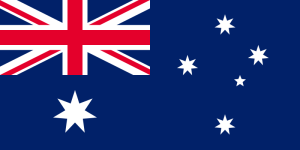February 2024
February 2024
Gresham House has launched a new sector specialist biodiversity strategy to accelerate the deployment of nature-based solutions to halt biodiversity decline in the UK, 1 while delivering robust financial returns for investors. Clients of WTW – a leading global insurance and advisory company with over $150 billion in assets under management and $4.7 trillion of assets under advisement 2 – have been announced as the cornerstone investors in the partnership.
With the UK Government’s landmark Environment Act 2021 biodiversity net gain (BNG) requirements coming into force last week 3, all developers will now need to achieve a biodiversity net gain of at least 10% for their sites to gain planning permission 4. These rules establish England as one of the first countries in the world to make BNG mandatory, creating a new market worth hundreds of millions of pounds annually 5 and paving the way for other countries to do the same. 6
Targeting a raise of $380mn, Gresham House’s GHBC strategy will invest in ‘Habitat Banks’ created by Environment Bank Limited (EBL), a portfolio business within Gresham House’s British Sustainable Infrastructure Fund (BSIF) Strategy. Dedicated to tackling the critical issue of biodiversity loss and ecosystem collapse, Habitat Banks turn landscape-scale areas of non-arable farmland into mosaics of woodlands, wetlands, and species rich grasslands in accordance with the Government’s BNG metrics. BNG units are then generated from these assets and sold to developers requiring planning permission – delivering strong financial returns by driving positive environmental and societal impact.
Gresham House and WTW’s backing enables EBL to offer developers across England a fully funded, one-stop solution to the challenges posed by the BNG requirements, providing legal and financial certainty. EBL is the only national scale operator and already has a network of Habitat Banks across England ready to meet the needs of developers. This new strategy will allow them to continue to scale to meet rapidly growing demand.
Habitat Banks also offer corporates a significant opportunity to demonstrate that they can see the long-term value of investing to become ‘Nature Positive’, and to becoming early adopters in their Taskforce for Nature-Based Financial Disclosures (TNFD). Complementing the compliance market driven by the Environment Act’s BNG requirements, EBL’s assets are poised to play a crucial role in filling the supply-side gap in this nascent voluntary market too.
At the scale developed by EBL, Habitat Banks are already creating a biodiversity multiplier effect 7 and EBL’s fully funded model ensures all stakeholders benefit from best-in-class ecology alongside legal and financial certainty, achieving the best possible results for nature while providing certainty for their customers. Gresham House’s new biodiversity strategy will look to scale their network across England.
EBL aims to create c.8,000ha of Habitat Banks by 2026, which has the potential to increase species diversity by 20 times at those sites across the country.
Peter Bachmann, Managing Director of Sustainable Infrastructure at Gresham House said: “With nature consistently emerging as a key theme in the global narrative around climate, it shows consensus is rapidly growing among political and business leaders that we cannot combat the climate crisis without addressing biodiversity loss. We are extremely proud of having co-created a nature-based solution with EBL tailored to the needs of the UK Government and industry alike. With the UK in the bottom 10% globally in terms of biodiversity, we can see no better place to partner with forward-thinking investors such as WTW to tackle this grave threat.
“It has been a pleasure working with WTW to support their clients’ ambitions to invest in new solutions to the wider natural capital challenges. Gresham House remains committed to addressing the challenges posed by biodiversity loss through nature-based solutions that set industry standards for ecological integrity.”
When delivered on a global scale, nature-based solutions such as habitat banks can provide up to 10Gt of CO2 savings globally – equivalent to the emissions of the US, the US and Japan combined.
So Yeun Lim, Global Head of Infrastructure Research at WTW, said: “WTW identified growing demand for opportunities to establish nature positive credentials as there was a clear need for new, investible nature-based solutions. This type of solution provides an opportunity to deliver environmental impact alongside risk-adjusted financial returns in the natural capital space.”
As part of its BSIF strategy, Gresham House and its investors have already committed over $300mn to EBL to date, enabling it to lead the way in market based BNG solutions. It has over 3,500 hectares of land either in development or under offer and a team of over 80 behind it, including world class ecologists and land management specialists.
Ruth Murray, Investment Director, Sustainable Infrastructure continued: “To create positive outcomes for both nature and society, we need to deliver the right landscapes in the right areas. This lies at the heart of EBL’s work, from their work with developers and local authorities, right through to neighbouring communities.
“The rapid mobilisation of capital from WTW into the nascent biodiversity market speaks volumes about the quality of the ecology and proposition that we’ve co-created with them. Their backing speaks to a strong desire for climate leadership within the insurance and advisory sectors.
“We are thrilled to be able to bring this truly game-changing solution to market, and to see the growing recognition globally around the critical need to fund nature restoration at scale. We look forward to helping other investors deliver robust financial returns through driving positive impact for nature.”
Following the successful final close of BSIF II at $570mn in November 2023 – backing over $2.5bn of controlled investment pipeline – Gresham House’s Sustainable Infrastructure team are now planning to launch BSIF III. 8 With a funding target of $950mn, BSIF III will seek to deliver real asset-based solutions to society’s biggest challenges, at ever greater scale and pace. EBL is ready now with on-the-ground solutions for developers and nature positive corporates, to help address biodiversity loss and ecosystem collapse across the UK while supporting their climate ambitions.
1. With less than 53% of its biodiversity left, the UK consistently ranks among the bottom 10% in terms of biodiversity intactness.
3. BNG will be mandatory for new planning applications for ‘major development’ made under the Town and Country Planning Act (TCPA) 1990, meaning residential developments with 10 or more dwellings, or where a site area is greater than 0.5 hectares, subject to confirmed exemptions. BNG for small sites will have an extended transition period and will apply from 2 April 2024.
4. All developments in England with a value of more than $1.27mn per the Environment Act, which became law in England in 2021 (£1mn converted into USD using the exchange rate of £1:$1.27, correct as of 31.01.2024 – all figures in this release have also been converted into USD for consistency).
5. See the Department for Environment, Food & Rural Affairs (DEFRA)’s guidance on Statutory biodiversity credit prices: https://www.gov.uk/guidance/statutory-biodiversity-credit-prices
6. The UK’s leadership in this area is further evidenced by the UK-France Global Roadmap to mobilise global nature finance which launched last year, see: https://www.gov.uk/government/news/uk-france-global-roadmap-launched-to-mobilise-global-nature-finance
7. Due to the Lawton Principles, see: https://naturalengland.blog.gov.uk/2023/07/28/preparing-the-market-for-statutory-biodiversity-credits/
8.BSIF III will also invest in delivering BNG units via EBL, but GHBC is the only fund dedicated (solely) to this sector.
Media enquiries:
Greenhouse
GreshamHouse@greenhouse.agency
 Gresham House
Specialist asset management
Gresham House
Specialist asset management






